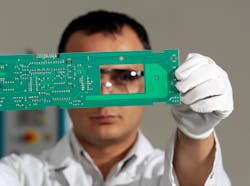OPC launches OPC Foundation North American certification lab, provides pre-testing tools
The lab maintains a growing number of so-called reference products—actual products from other manufacturers that the product can be tested against. Initially consisting of about 15 products—including products from Rockwell, Siemens, and Honeywell—that number is expected to grow. Indeed, as manufacturers send their products to the lab for certification, OPC Foundation will ask if they can leave them with the lab to serve as reference products for future tests.
After OPC Foundation conducts the full interoperability audit, it provides a formal report to the manufacturer of what needs to be changed, if anything, to assure interoperability. Its test lab engineers also provide informal feedback and guidance for maintaining compatibility in the future while ensuring maximum performance of the product.
If a product fails the certification, OPC Foundation works with the supplier to resolve any problems.
Although the lab just opened in April, there are already 28 products in the queue for testing. Testing in the OPC Foundation lab typically takes aless than a week.
Read about a supplier’s experience on what it’s like to go through the testing process, as well as the end-user perspective on how certified components will sharply reduce implementation costs.
For more information about this exciting OPC Foundation member benefit please go to the that www.OPCFoundation.org website.
About the Author
Thomas Burke
President

Leaders relevant to this article:
